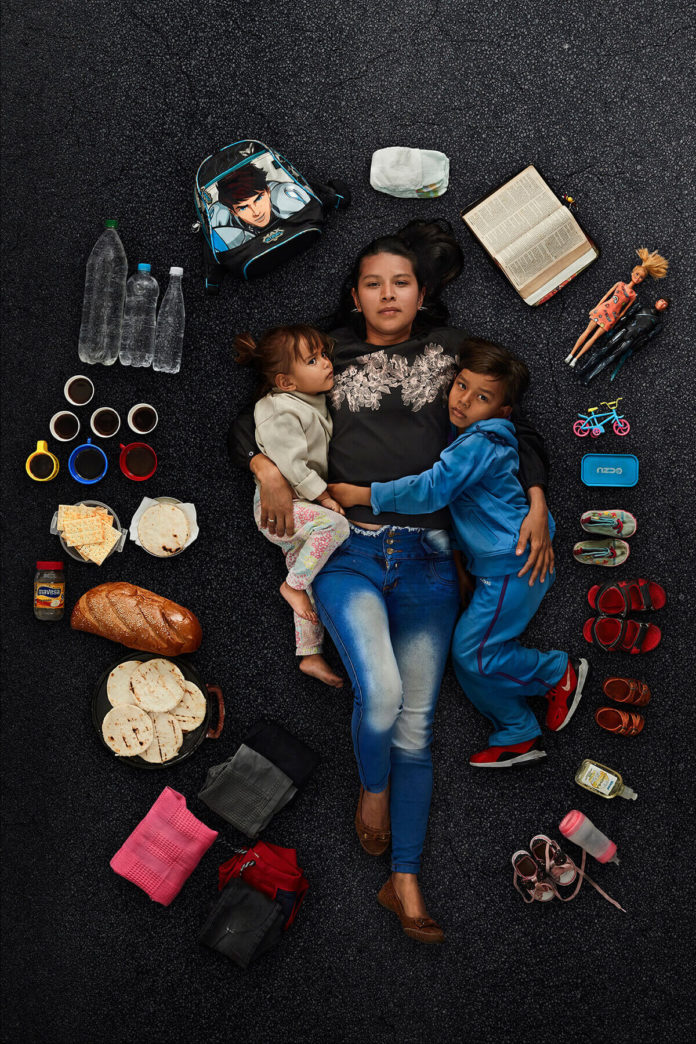
In his Undaily Bread series, Gregg Segal photographs Venezuelan immigrants with the entirety of their belongings lying around them. Created in collaboration with UNHCR, an organization that helps refugees worldwide, the affective project shows a glimpse at what life as a Venezuelan refugee looks like, from the meager ingredients of their daily meals to the battered sneakers on their feet. Every image posted on Segal’s Instagram also includes a lengthy caption describing each family’s difficult journey.
“For me, photography communicates better than simply words. Statistics are important, but people are not that interested in statistics,” Segal tells Colossal. “They’re emotional because they describe how little the people have.” This consequential series is an offshoot of Daily Bread, Segal’s well-known project that captures images of kids from around the world surrounded by what they eat each day.

“Nathalia Rodriguez (9) who walked from Barquisimeto, Venezuela to Bogota with her mom, ate only bread, crackers, arepas, chips, water, juice, lollipops and the one fruit they could afford, bananas. It’s been 3 years since Nathalia’s eaten an apple. Apples run 5,000 Bolivas now in Venezuela, about $12 US. Despite the harsh road she traveled, Nathalia projects resilience and resolve.”

“Yosiahanny’s daughter feels for the kick of her brother or sister in her mother’s womb. They made the journey from Venezuela surviving on arepas and water. Though life in Bogotá is difficult, Yosiahanny is grateful she’s able to eat more than once a day. What makes the crisis tolerable is love, she says.”

“When I met 7 year old Williams, he showed me his backpack in which he carried a few things from home including his last homework assignment. He misses his grandmother’s arepas and stewed chicken. On the long walk from Venezuela, there was only bread, water, cookies and fruit to eat.”

“Michell, a single mom, made the trip with her two kids twice. During the 2nd attempt, Michell had an epileptic seizure and lost consciousness. 16 days later she made it to Bogotá and was admitted. In her portrait, Michell contends with the dueling energy of her kids, trying to soothe her daughter while her son appears to be driving the bus. After the shoot, her little boy held onto two loaves of bread, carrying them around the studio, tucked under his arms for later.”
























